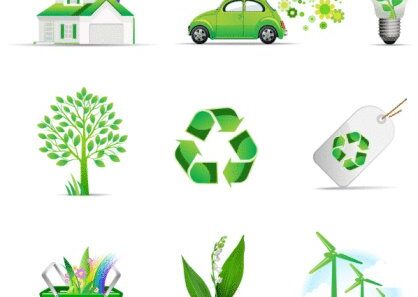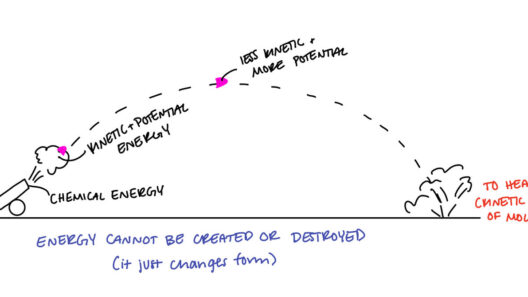Energy conservation is akin to a delicate dance, a choreography of minimalism and intention. Each small step, each nuanced movement, contributes to a grand performance that reverberates throughout our planet. In the quest for sustainability, the ways individuals conserve energy may appear minor on the surface, yet their cumulative impact on the environment is both profound and essential. Understanding this principle hinges on recognizing how energy consumption entwines with ecological balance, like the intricate threads of a tapestry.
At its core, energy conservation involves reducing energy usage while achieving the same outcomes. This practice encompasses a spectrum of initiatives, from turning off lights when leaving a room to utilizing energy-efficient appliances. These modest actions, seemingly inconsequential, can foster a ripple effect, akin to a single drop of water creating concentric circles on a tranquil pond. The scope and implication of energy conservation cannot be overstated, for every watt saved translates into less demand on our natural resources and a reduced carbon footprint.
To illustrate, consider the paradigm of fossil fuels. The world’s reliance on these non-renewable resources mirrors an addiction, with society periodically bubbling over into crises laden with environmental degradation and societal strife. Energy conservation serves as a potential antidote to this reliance, encouraging the transition toward more sustainable practices like renewable energy. Each kilowatt saved mitigates the impetus for extracting fossil fuels, thereby reducing pollution and habitat destruction associated with their extraction and burning.
Moreover, energy conservation plays a pivotal role in combating climate change, a substantial contributing factor to global extremities. By conserving energy, we directly lower greenhouse gas emissions—the primary culprits in the warming of our atmosphere. Just as a gardener prunes a tree to enhance its growth, so too can individuals prune their energy usage, nurturing a healthier environment. Greater energy efficiency not only curtails harmful emissions but also propels the shift towards renewable energy sources, fostering a greener future.
Consider the case of transportation, a sector notorious for its substantial carbon footprint. Opting for public transit, carpooling, or embracing the mindful nexus of biking and walking instead of driving can significantly reduce personal energy consumption. Each journey relinquished in favor of a more sustainable alternative is a conscious step toward fostering an ecosystem that supports life in all its myriad forms. Here, the metaphor of a mosaic emerges; every trip not taken reinforces a broader picture of a reduced carbon footprint. A city that prioritizes such alternatives cultivates cleaner air, vibrant ecosystems, and healthier communities.
The intrinsic beauty of energy conservation lies in its accessibility. It beckons all individuals to partake, akin to a communal garden where everyone can plant seeds of change. Simple actions—switching off unnecessary devices, using natural light, and optimizing thermostats—are all part and parcel of a concerted effort to lessen energy demand. By establishing these habits, communities transform into sanctuaries of sustainability. Neighborhoods become stronger, individuals more aware, and together they cultivate a narrative of hope for future generations.
Furthermore, energy conservation fosters a sense of stewardship. When individuals embrace practices that conserve energy, they become custodians of the environment. This transition engenders a greater appreciation for our natural resources, enticing individuals to engage in broader ecological advocacy. Just as a river nurtures the lands it traverses, so too do conservation practices foster awareness and inspire activism on an expansive scale. This new consciousness can motivate policy changes, advocate for sustainable legislation, and drive initiatives aimed at preserving our planet.
In the realm of business, the narrative shifts but remains aligned with the ethos of conservation. Companies that prioritize energy efficiency and sustainability reap tangible rewards, both environmentally and economically. Energy-efficient systems and processes can significantly reduce operational costs while enhancing corporate image. This alignment of ecological and economic interests creates a virtuous cycle, where businesses become champions of sustainability and drive substantial change within their sectors. Herein lies the vision of corporate responsibility—a testament to broader societal commitments that initiate at the grassroots level.
The appeal of energy conservation extends even further—it promotes innovation and ingenuity. As individuals and organizations seek out novel solutions to reduce energy consumption, a plethora of creative technologies arise. From smart home devices that optimize energy use to advanced renewable energy systems, these developments inject vitality into economies, catalyzing green job growth and instilling a sense of purpose. Imagine an explosion of creativity, where every individual becomes a pioneer of sustainable innovation, redefining what is achievable in energy consumption.
In conclusion, energy conservation is not merely a series of individual actions; it is a collective movement that possesses the capacity to reshape our interaction with the planet. Inspired by the metaphor of a choir, each voice contributes harmoniously to a larger symphony. The resultant melody of energy conservation echoes far and wide, creating resonances that can heal the earth’s wounds. As individuals embrace small, deliberate actions toward reducing energy usage, they unveil the profound truth: small actions do have big impacts. The tapestry of our environment is woven with the threads of collective effort, becoming richer and more vibrant with each conscious decision made.
Ultimately, it is imperative to recognize that energy conservation is not a fleeting fad; rather, it is an essential hallmark of sustainable living. The future beckons, inviting a resurgence of awareness, creativity, and commitment to actions that resonate with the environment. Embrace this journey, for the potential of energy conservation lies not just in its ability to preserve our planet today, but in its promise to inspire generations to come.






